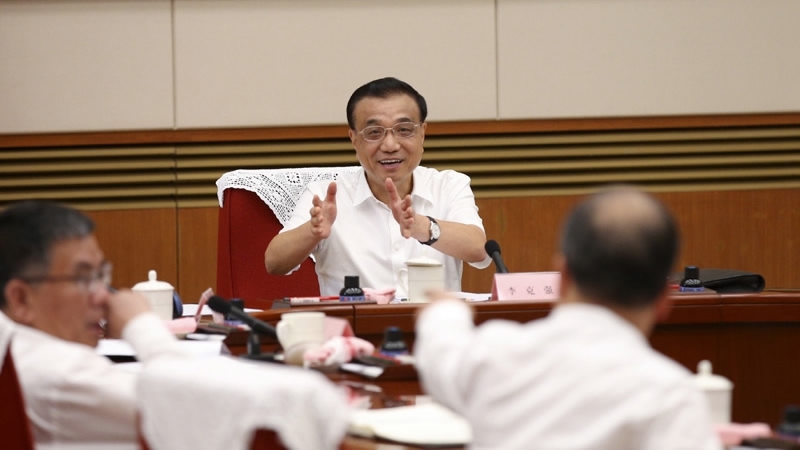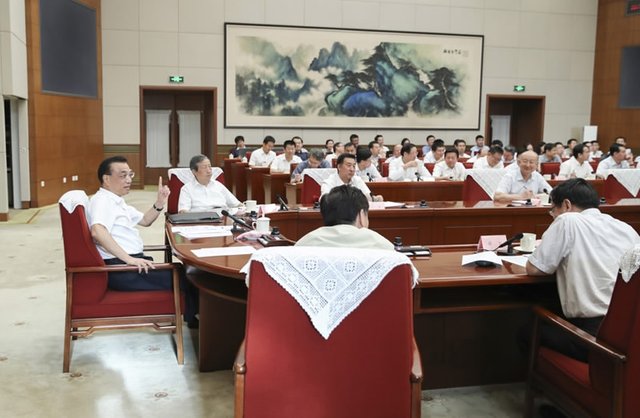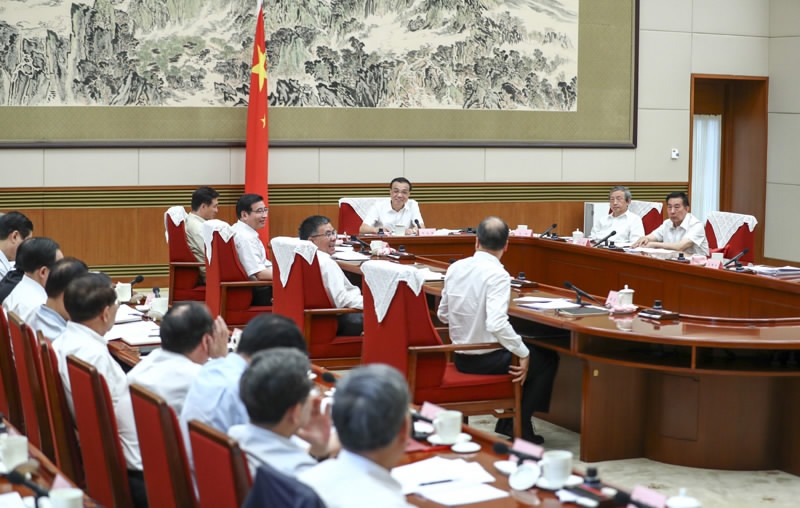China eyes innovation to drive manufacturing upgrades

China will count on innovation to drive manufacturing upgrades and economic restructuring, encouraging industry giants to make breakthroughs in core technology and take advantage of the Internet to reshape development, Chinese Premier Li Keqiang said on Friday.
Li made the remarks at a meeting with government officials and executives of leading manufacturers.
"Manufacturing is the foundation of economic development," Li said. "China's economic transformation and new industrialization rely on a strong manufacturing sector."

But Chinese manufacturers as a whole are still at the mid- and low-end of the international division of labor, they are big but not always strong, Li said.
The country should briskly push forward its "Made in China 2025" strategy to bring the manufacturing to a new level, with measures to eliminate outdated capacity and techniques and step up shifts of economic engines, Li noted.
When discussing with entrepreneurs, the premier called on homegrown companies to improve diversity, quality and the brand value of their products, and vigorously follow international standards. Braving global competition will "prompt innovation and breakthroughs in core technology," Li said.
Manufacturers should foster new advantages of high quality and applicability of their products and wean-off the reliance on cheap costs, which will help more domestic brands become well-known around the globe, according to Li.
Highlighting innovation in management systems, Li asked companies to use Internet and big data technologies to reorganize their research and development, production and business patterns.
"Customized production should be promoted to meet diverse market demand," Li said.

China will tap into the potential of abundant human resources, Li said.
"Entrepreneurship and the spirit of craftsmanship will be promoted, efforts must be made to foster more technical and management talent, as well as skilled workers."
The premier promised a favorable environment for manufacturing upgrades.
The government will continue to delegate powers and cut red tape, with simplified market entry approval, lower institutional transaction costs and improved supervision, Li noted.
To encourage innovation, intellectual property rights will see better protection and producers and sellers of counterfeit and shoddy products will face tougher penalties, Li pledged.
China will roll out more fiscal support and preferential taxation policies to facilitate manufacturing upgrading, and propel inclusive finance to help cash-starved micro, small and medium-sized firms, according to Li.